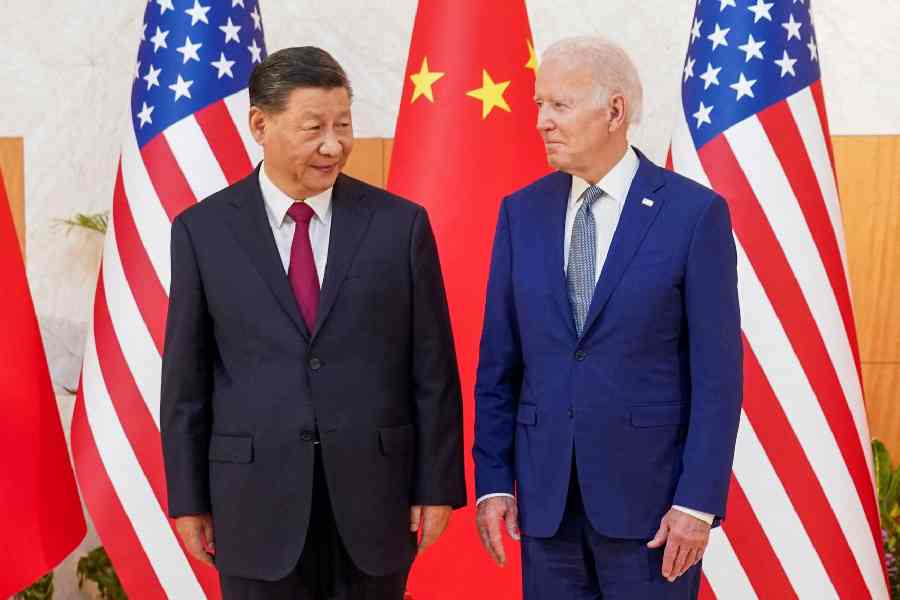After weeks of anticipation, the meeting between the Chinese president, Xi Jinping, and Joe Biden, the president of the United States of America, in San Francisco last week underscored the distrust and the tumult that continue to mark the relationship between the world’s two preeminent powers. The two leaders had not met since their conversation in Indonesia last November. In the interim, ties have nosedived. Both sides have imposed sanctions against each other; the US introduced a series of tough restrictions targeted at China’s semiconductor industry and accused China of spying on it with a high-altitude balloon. Given the backdrop, some analysts had hoped that the meeting between Mr Biden and Mr Xi might set the stage for an easing in tensions. That did not happen; instead, it served to showcase the depth of the challenges Washington and Beijing face in managing their relationship. In a four-hour meeting, the two leaders agreed to reinitiate a military-level dialogue, renew collaboration against climate change, and tackle the problem of fentanyl trafficking amid the ongoing opioid crisis in the US. Mr Biden called the meeting constructive and productive. But soon after the meeting, the US president described Mr Xi as a dictator in response to a media question, sending his secretary of state, Antony Blinken, into a brief grimace seen around the world.
Admittedly, a dramatic breakthrough was not expected from the meeting. But Mr Biden’s description of Mr Xi right after their summit highlighted his view of the tensions with China as a Cold War-like battle between two competing systems. While Mr Xi said that there was enough space in the world for both the US and China to grow, the reality is that Beijing wants to displace Washington as the world’s leading power. In an election year in the US, Mr Biden will be under pressure to appear strong against China and tensions over everything — from technology and trade to Taiwan — might well soar in the coming months. China’s increasing presence as a mediator in the Middle East means the two powers will also rub up against each other in a region smouldering with anger over Israel’s war on Gaza. Demands will be made that the rest of the world choose between Washington and Beijing. But doing so would only further cleave the world. India must be cautious. It must treat its own tricky ties with China on their merit alone. The US is two oceans away.











